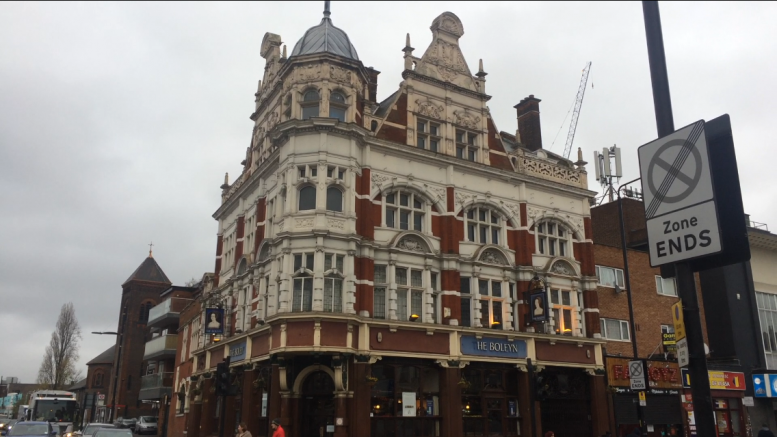The chorus of cockney natter and shuffling of claret draped bodies had been a staple ingredient of East End charm for 112 years. The epicentre was the Boleyn Ground, but two and a half years since the club moved to Stratford, Upton Park has been left astray, now on the periphery of a football club it once called home.
West Ham United’s move to the London Stadium had a clear objective- enhance the club brand, attract better players and compete for European football.
“It’s a major part of our strategy that West Ham move to the Olympic Stadium” David Sullivan told reporters upon his arrival as club co-owner in 2010. And the idea didn’t provoke the level of disdain from fans that it has now.
It did however, create worry in Upton Park. The Boleyn Tavern is arguably the world’s most famous football pub, just a stone’s throw from where the Boleyn Ground once stood. It now gets by, but is one of few local businesses to survive the relocation of its main clientele.

“It was a bit of a mixture. It was sad when they told us.” Nicky is a member of the bar staff at the Boleyn Tavern, and told Voice of London about life after the club’s move.
“Some of the regulars still come in here, some try and come down if they’ve got a day off work. Business has been steady, but Saturdays are quieter than they used to be that’s for sure.”
Nicky and the staff never received direct contact from the club. “They left us. We would’ve liked some sort of communication.”
The supporters club behind the pub has since closed, as has a café on the opposite side of the street. After 80 years of business, Nathan’s Pie and Mash was also forced to close as business deteriorated following the move.
A very different picture is forming in Stratford. Not only is it the new home of West Ham, the Westfield’s shopping centre is one of a few renovations that has revived the town. Olympics and football fever can still be felt in the surrounding area of the Olympic Park.
Meanwhile, Ross back at the Boleyn Tavern tells us his community has been left to fend for itself, and that he has stopped going to West Ham games due to the gentrified nature of the club’s new home:
Luke, who is still a season ticket holder, echoes Ross’ sentiment, saying owners Sullivan and Gold have betrayed their East End roots.
“David Gold was born down the road from here. He’s an East End boy. He’s abandoned his own community, left us all to pick up the pieces.”
As you make your way out of Westfield’s shopping centre towards the Olympic Stadium, you begin to see what they mean. It’s plush, contemporary appearance is incomparable to the old school Queen’s Market or the modest businesses on Green Street.
The owners still have much of the stadium costs covered by the tax payer, the West Ham logo has since changed and the tradition of pie and mash before games has been superseded by a convoy of Domino’s pizza vans and commercial stands on match days.
Having said that the club’s worth has more than doubled since leaving the Boleyn, and Manuel Pellegrini appears to have found the magic formula as his side have gone on a run of victories in the Premier League.
It was a strange thing to hear, but during their win at home to Crystal Palace on the weekend, the crowd was uncharacteristically buoyed. It’s taken time, but maybe the stadium wasn’t the issue after all, just simply the quality of football?
Thought of West Ham going down is actually horrific, should never have moved to the London stadium
— JH (@jacmharris) September 1, 2018
https://platform.twitter.com/widgets.js
If West Ham’s form at their new home continues to improve and they can become the club that their owners envisaged, the number of critics will inevitably decrease, and they will rightfully be commended for their efforts.
This may be wishfully ambitious, but it would be refreshing to see some of that success filtered back to those on Barking Road and on Green Street. It would certainly be subversive in modern football, but Gold was once a member of the proletariat too. His childhood residence is due a ‘thank you’ gesture.
As Bobby Moore, Martin Peters, Geoff Hurst and Ray Wilson stand proudly in concrete immortality just metres from the Boleyn Tavern, they serve as a reminder that if West Ham United do go on to become a powerhouse of English football, three miles down the road in little Upton Park, is a community that will be eternally responsible for laying down the foundations.
Words: Charlie Bradley| Subbing: Matthew Smith

